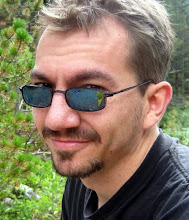Adam Frank has a post over on NPR entitled "Life Is More Meaningful Than Mere Facts Can Convey."
There are many reasons human beings institutionalized their spiritual longing into religions. Those reasons often devolved into considerations of power, control and real estate. Those institutions certainly have needed to enforce creed and doctrine, i.e. "knowledge."
But the reasons individuals find their lives transformed by spiritual longing are intimate and deeply personal affairs having little to do with dusty "proofs for the existence of God." As all those "spiritual but not religious" folks popping up in surveys on religion will tell you, the essence of the question is about experience, not facts.
Along a similar vein, in the pro-science/anti-religion camps one often hears the quest for understanding the universe put in equally ultimate, quasi-theological terms. Finding the final theory, the Theory of Everything, is held up as a kind of moment "when the truth shall be revealed once and for all." While many practicing scientists might not see it this way, the scientific knowledge/enlightenment trope has been there in popular culture for a long time reaching all the back to Faust and up through movies like Pi.
I think the conflict comes when someone on either side claims a monopoly on "truth." I'm not sure why there needs to be a conflict. Science gives us the facts about the universe and how it operates. Religion gives us the reason for being here. I am passionate about science, but I also have very closely held religious views. In my mind, they are not in conflict; rather they complement each other. It probably helps that I don't feel any need to convert anyone to my religious belief. Within my paradigm it's perfectly acceptable for people to believe whatever they are comfortable believing.
Science is a beautiful thing and I love it for how it illuminates our world and reveals the beauty in it. It can also be perverted into something twisted such as eugenics. I find religion to be much the same. Think of the beauty of the Sistine Chapel ceiling, the Sermon on the Mount, or the teachings of Buddha. Like science, though, religion also has it's share of horrific acts such as the Crusades.
People on both ends of this spectrum need to be more respectful of the other side. Ideally (in my view, at least), there wouldn't be sides because I don't think there should be conflict. People should be humble about their unprovable religious beliefs and understand that others may feel differently. Also, while science should not be worshipped as being without error, there should not be quibbling over facts especially those facts that have been demonstrated time and time again through multiple different experiments to be the best possible explanation.
Actually, this whole thing could be summarized by "Everyone should endeavor to be more humble and more respectful."

No comments:
Post a Comment